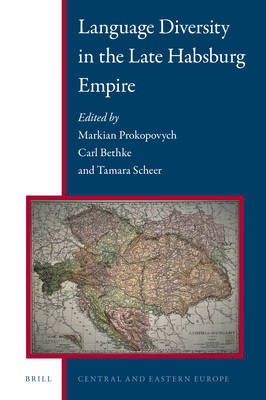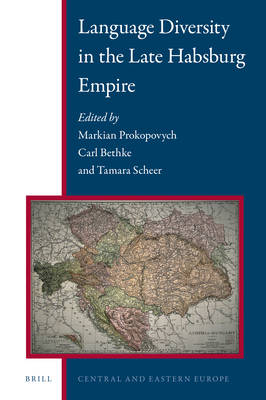
Je cadeautjes zeker op tijd in huis hebben voor de feestdagen? Kom langs in onze winkels en vind het perfecte geschenk!
- Afhalen na 1 uur in een winkel met voorraad
- Gratis thuislevering in België vanaf € 30
- Ruim aanbod met 7 miljoen producten
Je cadeautjes zeker op tijd in huis hebben voor de feestdagen? Kom langs in onze winkels en vind het perfecte geschenk!
- Afhalen na 1 uur in een winkel met voorraad
- Gratis thuislevering in België vanaf € 30
- Ruim aanbod met 7 miljoen producten
Zoeken
€ 187,45
+ 374 punten
Omschrijving
The Habsburg Empire often features in scholarship as a historical example of how language diversity and linguistic competence were essential to the functioning of the imperial state. Focusing critically on the urban-rural divide, on the importance of status for multilingual competence, on local governments, schools, the army and the urban public sphere, and on linguistic policies and practices in transition, this collective volume provides further evidence for both the merits of how language diversity was managed in Austria-Hungary and the problems and contradictions that surrounded those practices.
The book includes contributions by Pieter M. Judson, Marta Verginella, Rok Stergar, Anamarija Lukic, Carl Bethke, Irina Marin, Ágoston Berecz, Csilla Fedinec, István Csernicskó, Matthäus Wehowski, Jan Fellerer, and Jeroen van Drunen.
The book includes contributions by Pieter M. Judson, Marta Verginella, Rok Stergar, Anamarija Lukic, Carl Bethke, Irina Marin, Ágoston Berecz, Csilla Fedinec, István Csernicskó, Matthäus Wehowski, Jan Fellerer, and Jeroen van Drunen.
Specificaties
Betrokkenen
- Auteur(s):
- Uitgeverij:
Inhoud
- Aantal bladzijden:
- 284
- Taal:
- Engels
- Reeks:
- Reeksnummer:
- nr. 9
Eigenschappen
- Productcode (EAN):
- 9789004402102
- Verschijningsdatum:
- 1/08/2019
- Uitvoering:
- Hardcover
- Formaat:
- Genaaid
- Afmetingen:
- 168 mm x 236 mm
- Gewicht:
- 544 g

Alleen bij Standaard Boekhandel
+ 374 punten op je klantenkaart van Standaard Boekhandel
Beoordelingen
We publiceren alleen reviews die voldoen aan de voorwaarden voor reviews. Bekijk onze voorwaarden voor reviews.









